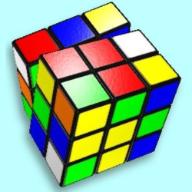can you help me solve this maths problem for my son? The answer is C:225 but can't figure out how they arrived at that?
2020-08-11 5:46 pm

回答 (12)
2020-08-13 12:21 am
✔ 最佳答案
They are expecting your son to notice a pattern. The sum of the first N odd numbers is always N × N (or as mathematicians would say it, N² meaning N "squared"). 1 odd number:
1 = 1 = 1²
2 odd numbers:
1 + 3 = 4 = 2²
3 odd numbers:
1 + 3 + 5 = 9 = 3²
4 odd numbers:
1 + 3 + 5 + 7 = 16 = 4²
So it would seem logical to conclude that if you add the odd numbers from 1 to 29 (that's a total of *15* odd numbers) that the answer would be 15² = 225
1 + 3 + 5 + 7 + 9 + 11 + 13 + 15 + 17 + 19 + 21 + 23 + 25 + 27 + 29 = 15² = 225
The following picture should help your son visualize why this makes sense.
1 is a perfect square.
When you add 3 to it, you get a new square that is 2 by 2 = 4.
Then when you add 5 to it, you get a new square that is 3 by 3 = 9.
You add 7 to it to get a square that is 4 by 4 = 16, etc.
So if you add 15 odd numbers (1 + 3 + 5 + ... + 25 + 27 + 29) you could arrange them similar to the diagram below into a square that was 15 by 15 = 225.
Answer:
C) 225
UPDATE:
The only hard part is figuring out how many odd terms you have in your sum. It may not be immediately apparent that there are 15 odd numbers listed. Your son can write them all out (as I did) and you'll see there are 15 terms.
It's clearly not 29 terms because you are leaving out the even numbers. In fact, you are losing nearly half of them. From 1 to 29, there are 14 even and 15 odd numbers. The number of odd numbers is (1 + 29)/2 = 15
Double-check:
1 + 3 + 5 + 7 + 9 + 11 --> (1 + 11) / 2 = 6 terms
1 + 3 + 5 + 7 + 9 + 11 + 13 + 15 + 17 --> (1 + 17) / 2 = 9 terms
So clearly:
1 + 3 + 5 + ... + 25 + 27 + 29 --> (1 + 29) / 2 = 15 terms

2020-08-11 6:14 pm
1 = The first odd number = 1 × 1
1 + 3 = The sum of first 2 odd numbers = 2 × 2
1 + 3 + 5 = The sum of first 3 odd numbers = 3 × 3
1 + 3 + 5 + 7 = The sum of first 4 odd numbers = 4 × 4
Similarly,
1 + 3 + 5 + 7 + …… 29
= The sum of first 15 odd numbers
= 15 × 15
= 225
The answer: C 225
1 + 3 = The sum of first 2 odd numbers = 2 × 2
1 + 3 + 5 = The sum of first 3 odd numbers = 3 × 3
1 + 3 + 5 + 7 = The sum of first 4 odd numbers = 4 × 4
Similarly,
1 + 3 + 5 + 7 + …… 29
= The sum of first 15 odd numbers
= 15 × 15
= 225
The answer: C 225
2020-08-14 10:38 am
It's C. 225
If you want the long solution then just add all the numbers in the sequence which is 1 + 3 + 5 + 7.... + 29. With a pattern of Adding 2. The result would be C. 225.
Short cut for this:
(First number + Last number) / 2 = (1 + 29) / 2 = 30 / 2 = 15
How many numbers are there in the sequence?
If you count them, then it would be 15
Take the results, which is 15 and 15, multiply them and you get 15 squared or 225
Answer: C. 225
If you want the long solution then just add all the numbers in the sequence which is 1 + 3 + 5 + 7.... + 29. With a pattern of Adding 2. The result would be C. 225.
Short cut for this:
(First number + Last number) / 2 = (1 + 29) / 2 = 30 / 2 = 15
How many numbers are there in the sequence?
If you count them, then it would be 15
Take the results, which is 15 and 15, multiply them and you get 15 squared or 225
Answer: C. 225
2020-08-12 1:42 am
He will be expected to use the pattern shown by the given examples to deduce a method of finding the sum of any such sequence (not to use fancy equations which he may not yet have been taught).
1 = 1 x 1
1 + 3 = 2 x 2
1 + 3 + 5 = 3 x 3
1 + 3 + 5 + 7 = 4 x 4
Look for the pattern : where does the (squared) number on the right-hand side come from ?
The first line is trivial, and gives no useful information. The second line gives 1 + 3 = (4), and a half of 4 = 2
The third line : 1 + 5 = (6), half of 6 = 3
Fourth line : 1 + 7 = (8), half of 8 = 4
So, it should be clear now : you add the first number and the last number, take half of it, and square it.
Hence the solution to the given problem is 1 + 29 = (30), half of which is 15, hence the sum is 15 x 15.
(And notice that the first line still fits into the pattern : 1 is both the first number AND the last number, so 1 + 1 = 2, and half of 2 =1 !)
1 = 1 x 1
1 + 3 = 2 x 2
1 + 3 + 5 = 3 x 3
1 + 3 + 5 + 7 = 4 x 4
Look for the pattern : where does the (squared) number on the right-hand side come from ?
The first line is trivial, and gives no useful information. The second line gives 1 + 3 = (4), and a half of 4 = 2
The third line : 1 + 5 = (6), half of 6 = 3
Fourth line : 1 + 7 = (8), half of 8 = 4
So, it should be clear now : you add the first number and the last number, take half of it, and square it.
Hence the solution to the given problem is 1 + 29 = (30), half of which is 15, hence the sum is 15 x 15.
(And notice that the first line still fits into the pattern : 1 is both the first number AND the last number, so 1 + 1 = 2, and half of 2 =1 !)
2020-08-11 6:12 pm
The sequence is 1 + 3 + 5 + 7 +...+ 25 + 27 + 29
Adding the first 4 number is 1 + 3 + 5 + 7 = 4 x 4
so, adding the first 5 numbers would give:
1 + 3 + 5 + 7 + 9 = 5 x 5
Now, the odd numbers from 1 to 29 gives 15 numbers
Hence, 15 x 15 = 225
:)>
Adding the first 4 number is 1 + 3 + 5 + 7 = 4 x 4
so, adding the first 5 numbers would give:
1 + 3 + 5 + 7 + 9 = 5 x 5
Now, the odd numbers from 1 to 29 gives 15 numbers
Hence, 15 x 15 = 225
:)>
2020-08-12 10:37 am
1 + 3 + 5 + 7 + ...... + 25 + 27 + 29
sum_(n=1)^15(2 n - 1) = 225
Answer choice:
C. 225
sum_(n=1)^15(2 n - 1) = 225
Answer choice:
C. 225
2020-08-12 8:18 am
Look at the pattern. On the left side they are adding the first N odd numbers:
1 (one odd number)
1 + 3 (two odd numbers)
1 + 3 + 5 (three odd numbers)
1 + 3 + 5 + 7 (four odd numbers)
On the right is N^2.
You can do the addition yourself to confirm that these are indeed equal.
They want to know what 1 + 3 + 5 + 7 + 9 + 11 + 13 + 15 + 17 + 19 + 21 + 23 + 25 + 27 + 29 equals. That's the first 15 odd numbers, so the answer is 15^2.
A simple way to prove this sum is to pair the odd numbers and replace them.
1 + 29 = 30 = 15 + 15
3 + 27 = 30 = 15 + 15
5 + 25 = 30 = 15 + 15
...
therefore 1 + 3 + 5 ... + 25 + 27 + 30 = 15 + 15 + 15 ... + 15 + 15 + 15.
The sum of 15 15's is 15^2.
1 (one odd number)
1 + 3 (two odd numbers)
1 + 3 + 5 (three odd numbers)
1 + 3 + 5 + 7 (four odd numbers)
On the right is N^2.
You can do the addition yourself to confirm that these are indeed equal.
They want to know what 1 + 3 + 5 + 7 + 9 + 11 + 13 + 15 + 17 + 19 + 21 + 23 + 25 + 27 + 29 equals. That's the first 15 odd numbers, so the answer is 15^2.
A simple way to prove this sum is to pair the odd numbers and replace them.
1 + 29 = 30 = 15 + 15
3 + 27 = 30 = 15 + 15
5 + 25 = 30 = 15 + 15
...
therefore 1 + 3 + 5 ... + 25 + 27 + 30 = 15 + 15 + 15 ... + 15 + 15 + 15.
The sum of 15 15's is 15^2.
2020-08-12 6:08 am
Essentially, you are adding up the odd numbers...
so count the number of numbers: 15
using induction and using S_n to represent the sun of the first n numbers in the series:
S_1 = 1 = 1*1 ..... n*n where n = 1
S_2 = 1+3 = 2*2.... n*n where n = 2
S_3 1+3+5 = 3*3....
so S_15 = 15*15 = 225
so count the number of numbers: 15
using induction and using S_n to represent the sun of the first n numbers in the series:
S_1 = 1 = 1*1 ..... n*n where n = 1
S_2 = 1+3 = 2*2.... n*n where n = 2
S_3 1+3+5 = 3*3....
so S_15 = 15*15 = 225
2020-08-11 9:36 pm
The nth term is 2n-1 and the missing numbers are 9+11+13+15+17+19+21+23 and they all add up to 225 which is option C
2020-08-11 7:46 pm
1+3+5+7=1+(1+2)+(1+4)+(1+6) =(1+1+1+1)+(2+4+6)=4+1
12=16=4*4 This is the answer.
12=16=4*4 This is the answer.
2020-08-11 6:53 pm
Use the equation
S(n) = (n/2)(2a + n - 1)d)
Where
n = is the number of terms ( 15 in this case)
a = starting value (1 in this case)
d = difference between each term ( 2 in this case)
Substituting
S(15) = (15/2)(2(1) + ( 15 - 1)2))
S(15) = (15/2)(2 + 14(2))
S(15) = (15/2)(2 + 28)
S(15) = (15/2)(30)
Cancel down by '2'
S(15) = 15(15)
S(15) = 225 As required!!!!
Hope that helps!!!!
S(n) = (n/2)(2a + n - 1)d)
Where
n = is the number of terms ( 15 in this case)
a = starting value (1 in this case)
d = difference between each term ( 2 in this case)
Substituting
S(15) = (15/2)(2(1) + ( 15 - 1)2))
S(15) = (15/2)(2 + 14(2))
S(15) = (15/2)(2 + 28)
S(15) = (15/2)(30)
Cancel down by '2'
S(15) = 15(15)
S(15) = 225 As required!!!!
Hope that helps!!!!
2020-08-11 6:28 pm
The "pattern below" shows that the sum of a series of odd numbers starting at 1 is equal to the square of the midpoint of that series.
Add the first and last digits of such a series, divide by two, then square the result.
The midpoint of the series given (1 to 29) is 15.15^2 = 225
You can cross-check by adding all the odd numbers from 1 to 29. The total is 225.
Add the first and last digits of such a series, divide by two, then square the result.
The midpoint of the series given (1 to 29) is 15.15^2 = 225
You can cross-check by adding all the odd numbers from 1 to 29. The total is 225.
2020-08-12 1:58 am
How many numbers in the sequence 1, 2, 3,....,29? There are 15 in all. You could list them all count them. Or you could argue they are all the numbers from 1 to 29 less the even numbers, which are 2, 4, 6,.....,28. The latter amount to 28 ÷ 2, = 14, so the odd ones amount to 29 -14 =15. The pattern suggests they add up to 15 x15 = 225 (1 = 1 x 1, 1 + 3 = 2 x 2, 1 + 3 + 5 = 3 x 3, 1 + 3 + 5 + 7 = 4 x 4).
收錄日期: 2021-04-18 18:36:40
原文連結 [永久失效]:
https://hk.answers.yahoo.com/question/index?qid=20200811094630AAdspkn






